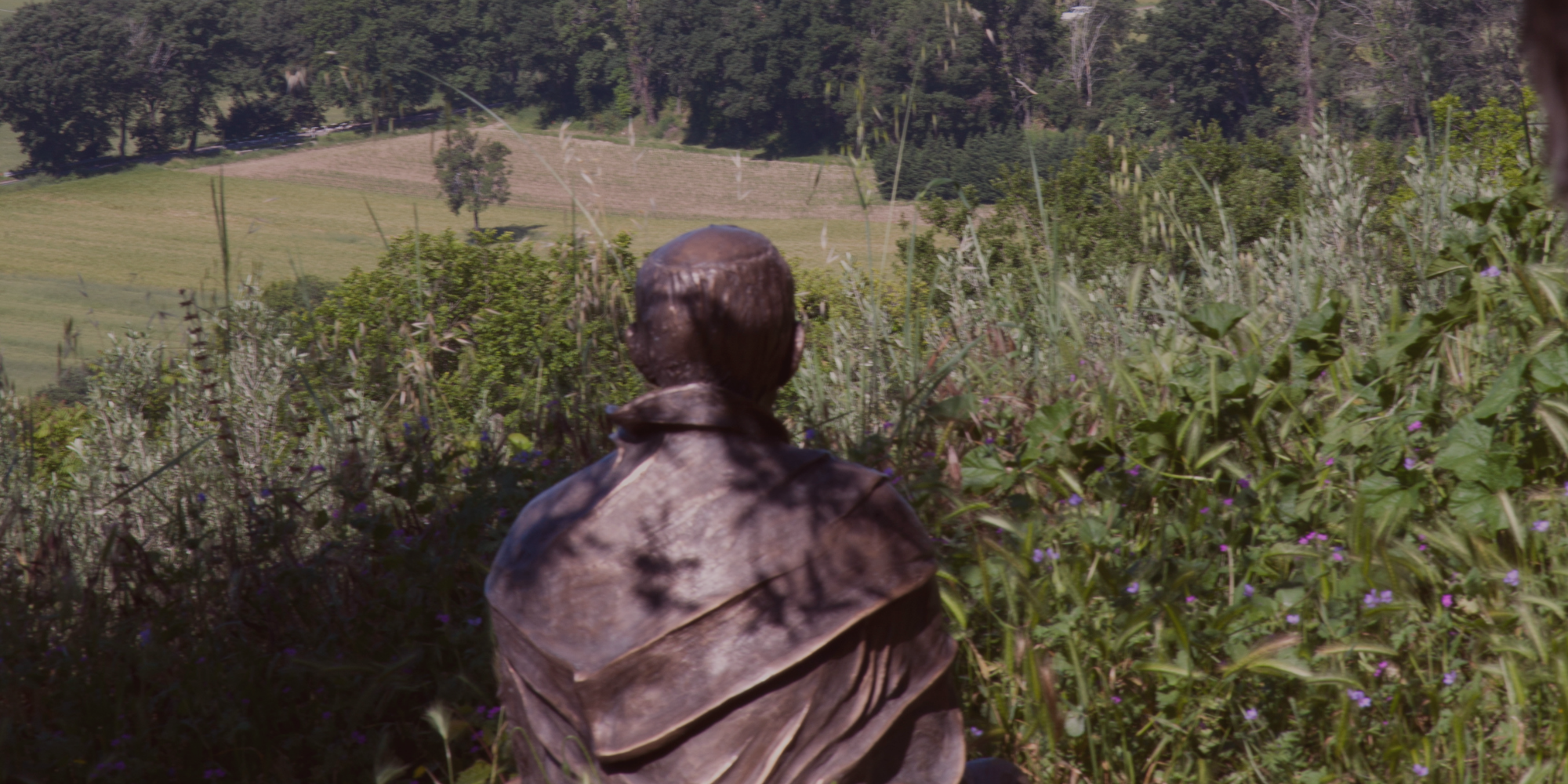Franciscans celebrate 800th anniversary of Canticle of the Creatures
Date Published: January 11, 2025
In a spirit of praise and thanksgiving, the Franciscan Order will celebrate the 800th anniversary of the composition of the Canticle of the Creatures by St. Francis of Assisi in 2025.
What is the Canticle of the Creatures?
The Canticle of the Creatures, also known as the Canticle of Brother Sun, is a poem written by St. Francis of Assisi shortly before his death.
In the spring of 1225, after receiving the stigmata (the wounds of Christ) at La Verna, St. Francis of Assisi chose to spend 50 days at the Monastery of San Damiano, where St. Clare and the first Poor Sisters resided. During a night of suffering, St. Francis was visited by the Lord, who assured the Franciscan founder of his love and salvation.
Filled with gratitude, St. Francis was inspired to compose the Canticle of the Creatures, because for him, all of creation manifests the goodness of God. The Canticle is an expression for St. Francis, and for us all, of thanks for God’s many gifts and a reminder of the interdependence between humans and creation.
St. Francis’ hymn of praise recounts his journey of faith in and through the beauty and elements of creation – sun, water, wind, earth and other natural forces. It demonstrates God’s unconditional love that binds us together as “brother” and “sister,” and is a reminder that we are one family under God’s loving care.
The Canticle of Creation and Laudato Si’
Today the Canticle calls us to reevaluate our relationships with each other and the world around us: from possessing creation to caring for our common home.
The Canticle served as the inspiration for Pope Francis’ encyclical, Laudato Si’ (“Praise be to you”), marking the 10th anniversary of its publication this year. The encyclical’s subtitle, “Care for Our Common Home,” calls upon each of us to live out our faith by caring for the natural environment and all people, especially those most of need of God’s healing and love.
Both the Canticle and Laudato Si’ provide opportunities for reflection, discussion and action, as we seek to grow beyond the mindset of the current “throw-away” culture, embrace God as Creator, and acknowledge the dignity and worth of every living creature.
The Canticle of the Creatures by St. Francis of Assisi
Most High, all-powerful, good Lord,
Yours are the praises, the glory, the honor, and all blessing.
To You alone, Most High, do they belong,
and no human is worthy to mention Your name.
Praised be You, my Lord, with all Your creatures,
especially Sir Brother Sun,
Who is the day and through whom You give us light.
And he is beautiful and radiant with great splendor;
and bears a likeness of You, Most High One.
Praised be You, my Lord, through Sister Moon and the stars,
in heaven You formed them clear and precious and beautiful.
Praised be You, my Lord, through Brother Wind,
and through the air, cloudy and serene,
and every kind of weather,
through which You give sustenance to Your creatures.
Praised be You, my Lord, through Sister Water, who is very useful and humble
and precious and chaste.
Praised be You, my Lord, through Brother Fire,
through whom You light the night
and he is beautiful and playful and robust and strong.
Praised be You, my Lord, through our Sister Mother Earth,
who sustains and governs us,
and who produces varied fruits with colored flowers and herbs.
Praised be You, my Lord, through those who
give pardon for Your love,
and bear infirmity and tribulation.
Blessed are those who endure in peace
for by You, Most High, shall they be crowned.
Praised be You, my Lord, through our Sister Bodily Death,
from whom no one living can escape.
Woe to those who die in mortal sin.
Blessed are those whom death will find in Your most holy will,
for the second death shall do them no harm.
Praise and bless my Lord and give Him thanks
and serve Him with great humility.
800th anniversary celebrations of the Canticle of Creation
The entire Franciscan family began a series of celebrations at the Church of San Damiano and the Sanctuary of the Spoliation [Church of Santa Maria Maggiore] in Assisi on Jan. 11.
Both parts of the celebration are available to view online at https://www.centenarifrancescani.org/.

